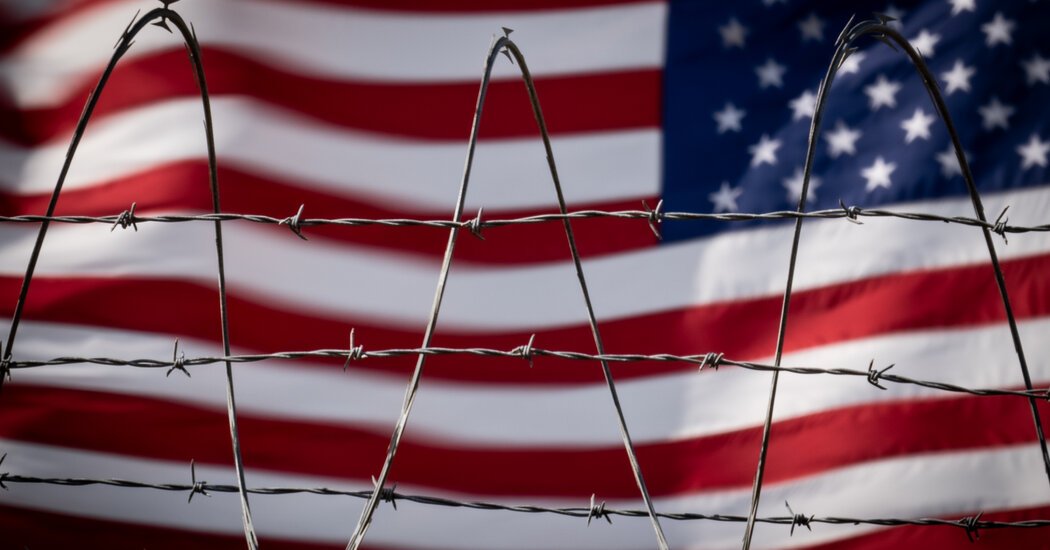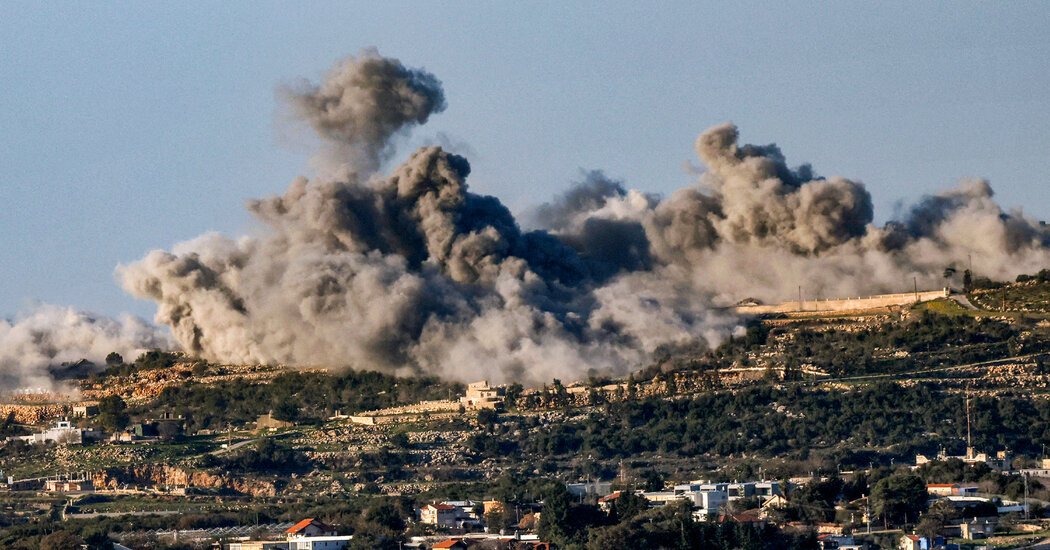In the Guantánamo war court, a defense lawyer was interrupted by white noise while making a constitutional argument regarding a case involving terrorist attacks in Indonesia that occurred two decades ago. Lt. Ryan P. Hirschler, a military lawyer on the defense team, was silenced mid-sentence by a court security officer, leaving spectators and lawyers bewildered. Once the audio was restored, the judge cautioned Lt. Hirschler to focus on legal principles rather than the specific facts of the case involving Encep Nurjaman, also known as Hambali, and his co-defendants.
This incident, although lacking a comprehensive explanation, highlights the sluggish pace of justice at Guantánamo Bay. Over 20 years have passed since the Bali and Jakarta attacks, which claimed the lives of more than 200 individuals, including seven Americans. The three defendants have been in U.S. custody for nearly two decades, initially held in C.I.A. prisons. However, lawyers and the judge are still grappling with determining which parts of the proceedings should remain classified.
Secrecy permeates the Guantánamo court hearings unlike any other American court. The public hears the audio on a 40-second delay, providing prosecutors with an opportunity to signal a court security officer, trained in C.I.A. secrets, to activate the “security classification button.” Commonly known as the “censorship switch,” this prompts a red light on the judge’s bench, reminiscent of a hockey goal signal.
Determining what constitutes a secret in this specialized court can be perplexing. In previous lengthy cases, mentioning the C.I.A. or the term “torture” triggered the security measures, but those restrictions have been lifted. However, lawyers are still constrained in discussing certain matters, as seen when James R. Hodes, Mr. Hambali’s lead lawyer, was prevented from elaborating on what the junior lawyer said after uttering the word “repugnant.”
Classified information at the war court typically revolves around the defendants’ time in C.I.A. custody and the subsequent torture they endured. It may involve identifying individuals who worked in the program or revealing details about other intelligence agencies operating there. Sometimes the classified information is already publicly known but remains officially classified. For instance, witnesses, lawyers, and even the judge are obliged to refer to Poland as “Location 4” in the Sept. 11 and U.S.S. Cole cases, even though the U.S. Supreme Court openly named the country during a recent case.
Certain information related to the Guantánamo prison itself is also off-limits in open court, including the location of Camp 7, where former C.I.A. captives, including the defendants in the Bali bombing case, were held until 2021. The identities of personnel and surveillance systems used to monitor detainees’ conversations in recreation yards are also restricted.
Lt. Hirschler argued that the case should be dismissed due to the delayed court appearance of the defendants. Prosecutors proposed starting the trial in March 2025 to allow sufficient time for processing classified evidence. The defense lawyer criticized the government for waiting 18 years to bring the case forward. The defendants were captured in Thailand in 2003 and transferred to Guantánamo Bay with other high-value prisoners held by the C.I.A. in 2006, which led to the subsequent establishment of military commissions by Congress.
Prosecutors have been building their case against Mr. Hambali and his co-defendants since 2016, including failed attempts to secure a guilty plea and cooperation from one defendant. However, it wasn’t until August 2021 that Mr. Hambali and his co-defendants appeared in court for the first time, with their arraignment delayed due to the pandemic. Lt. Hirschler was presenting arguments in April at only their second court appearance.
The judge, Capt. Hayes C. Larsen, has yet to issue a ruling, acknowledging the complex legal issues raised by the question of a speedy trial and the interaction of various laws referenced by both parties. During the proceedings, when the prosecutor was asked about the start of the U.S. criminal investigation into Mr. Hambali and his co-defendants, the security officer silenced the audio for the public. It was restored six minutes later, with the judge stating that the issue had been addressed.





